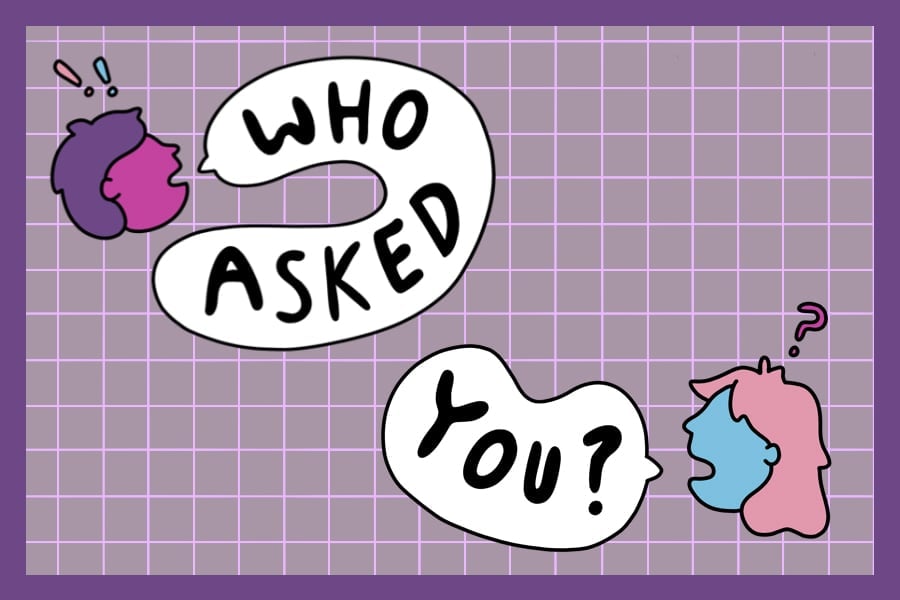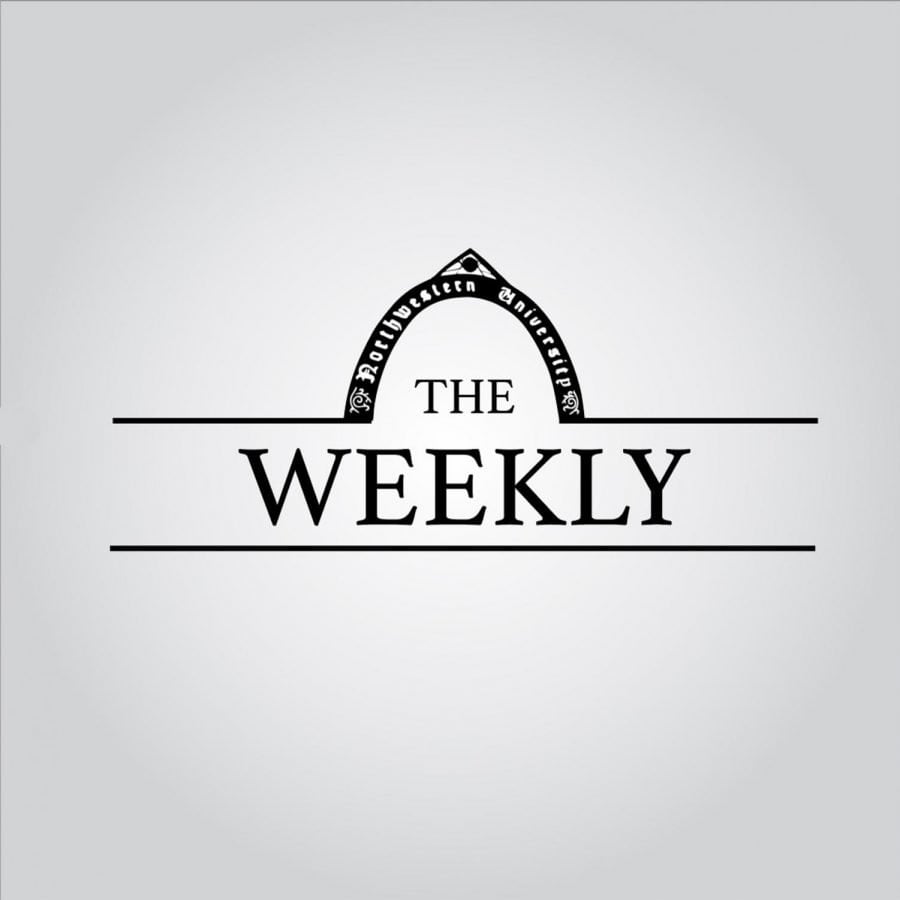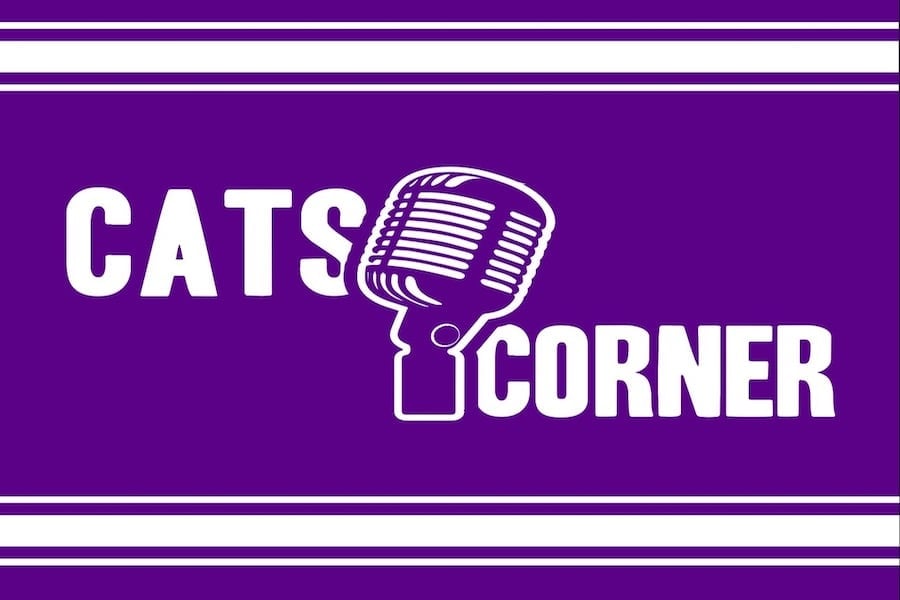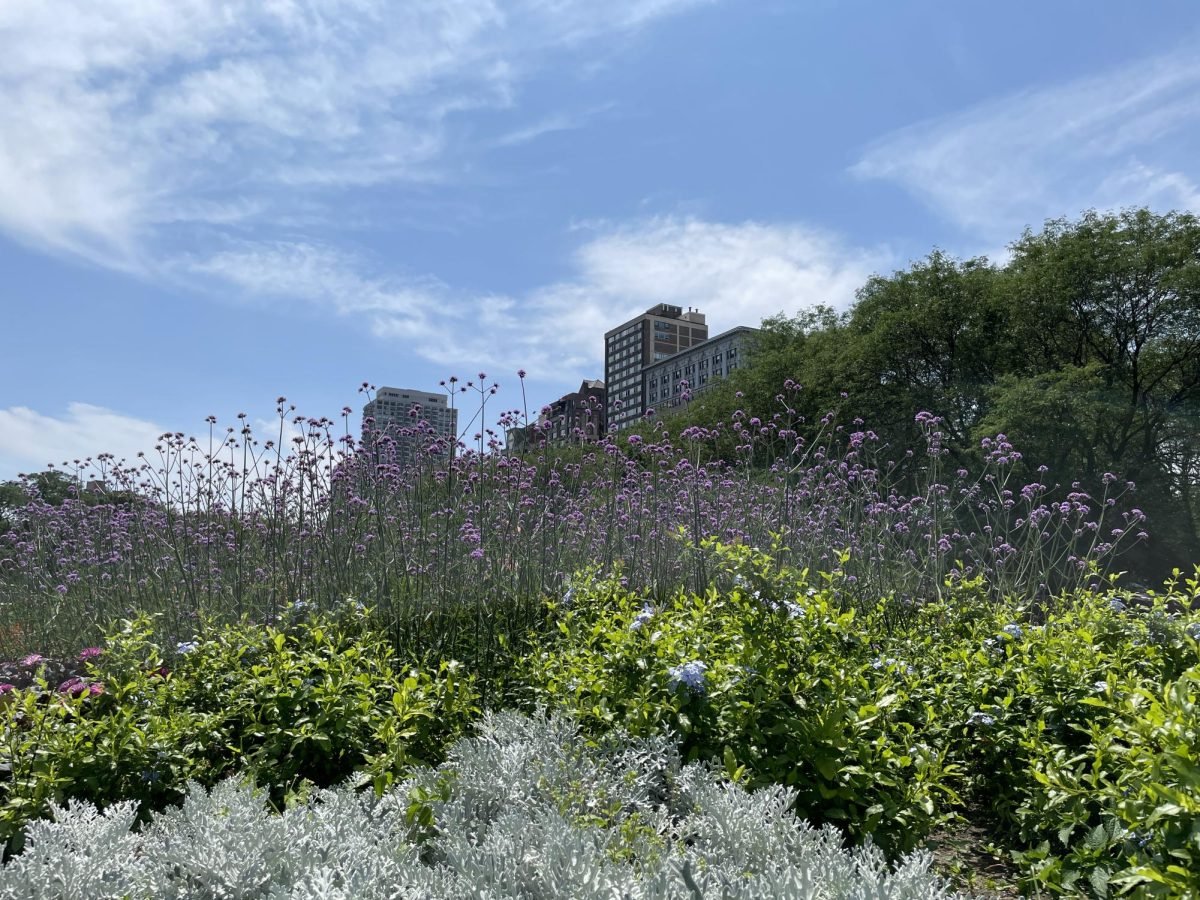
 What are employees saying about Colectivo Coffee’s workplace environment? What were the hot-button issues at an Evanston candidates’ forum? How is Trump’s diversity, equity and inclusion executive order impacting instruction? How did NU celebrate Valentine’s Day? The Daily answers these questions and recaps other top stories from the last week.
What are employees saying about Colectivo Coffee’s workplace environment? What were the hot-button issues at an Evanston candidates’ forum? How is Trump’s diversity, equity and inclusion executive order impacting instruction? How did NU celebrate Valentine’s Day? The Daily answers these questions and recaps other top stories from the last week.
ANAVI PRAKASH: Colectivo Coffee workers allege a toxic workplace environment.
City Council and mayoral candidates gather for a contentious forum.
Trump’s executive order on diversity, equity and inclusion compromises the materials used in Northwestern classes.
NU clubs host a plethora of events to celebrate Valentine’s Day.
From The Daily Northwestern, I’m Anavi Prakash.
VALENTINA VALCARCE: And I’m Valentina Valcarce. This is The Weekly, a breakdown of the top headlines from the past week.
[music]
ANAVI PRAKASH: Today, we’re starting with a look at our first In Focus, or IF, story of the quarter. Our In Focus editors are William Tong and Aidan Johnstone. So, to start off, can you tell us a little bit about how the IF desk works?
WILLIAM TONG: The In Focus desk at The Daily Northwestern is our investigation section. We produce between one and two long-form investigative feature stories every quarter.
ANAVI PRAKASH: And what is the significance of having a desk like this at The Daily?
AIDAN JOHNSTONE: I think investigative desks, especially In Focus at The Daily — it allows for accountability for both the school and the city and we’re like Evanston’s watchdogs.
ANAVI PRAKASH: In general, how does reporting an IF work, from beginning to end?
WILLIAM TONG: Sometimes we’ll get tips from community members, and by the way, if you have tips for us, email us at infocus@dailynorthwestern.com. In other cases, some of our beat reporters, after being really immersed in a specific area of coverage — whether that’s on campus or in Evanston — they will really get to understand an issue very in-depth and from that, ideate some sort of pitch for the In Focus.
AIDAN JOHNSTONE: We really just like to let the reporters take as much time as they need to really flesh out these stories.
WILLIAM TONG: When that all comes together, we put it through a very rigorous editing and fact-checking process and then we put the stories out, publish them online and in print. You can go grab a copy of the latest one right now, actually.
ANAVI PRAKASH: William and Aidan, thank you.
Senior staffer Casey He and Diversity and Inclusion Chair Shreya Srinivasan reported on incidents of sexual harassment and racism at Evanston’s Colectivo Coffee and larger issues within the company.
To start off, can you tell us a little bit about how you got started with the story after connecting with a then-current Colectivo employee?
SHREYA SRINIVASAN: We didn’t really know much about it at this point, so we were just kind of figuring out, like, what is their story?
After we had that initial call, it was like a few weeks after that happened, where the actual reporting really took off, and we kind of really started reporting the first week of October.
ANAVI PRAKASH: Now, this story touches not only on incidents of sexual harassment and racism, but also difficulty with Colectivo union negotiations. How did all these different aspects come together for the final story?
CASEY HE: So, obviously we have this whistleblower who came to us about their experience working at the Evanston Colectivo coffee shop, and our initial focus was really just about issues workers have had with the current manager at the Evanston location, but as we started on our reporting and talked to more former workers who either have experience under a different manager, the former manager at the Evanston location and also at the Andersonville location, we realized the problems with Colectivo are not just limited to this one manager at the one location, and that’s how we started to reformat our story, thinking about how we could bring in that larger context.
And an additional piece, as you talked about with the union contract negotiations. It was pretty widely reported that back when Colectivo workers were unionizing, the company used a variety of tactics to delay and discredit the unionizing effort, including hiring consulting firms that many regarded as a union buster. And, we really thought about ways to bring in that piece of context, and the way we achieved that was we talked to an organizer who was on the union contract negotiation team, and he provided us with context about the negotiation, and also how Colectivo was very unwilling to work with the union on the contract, and that sort of connected these many pieces of the story under this whole narrative arc.
[music]
ANAVI PRAKASH: Thanks so much, Shreya and Casey.
Next, we’re speaking with Assistant City Editor Marisa Guerra Echeverria about covering the candidate forum held on Feb. 9 and hosted by Where The People Meet TV and The Daily.
Marisa, you along with assistant city editors Clara Martinez and Sophie Baker reported on the forum. What were some of the big issues that dominated conversation?
MARISA GUERRA ECHEVERRIA: We saw a lot of conversation, probably the most was focused on housing affordability and intertwined with that was Envision Evanston 2045 because there is the whole contention of increasing housing density will lower housing prices or create more affordable housing units.
There’s a lot of contention as to whether that’s true or not, or whether it would become a “developers’ paradise” and just be an excuse to increase density and increase housing prices. So that was a big issue across all the wards, especially when it came to issues like transparency.
ANAVI PRAKASH: What ward-specific issues did candidates focus on? Did any tensions arise?
MARISA GUERRA ECHEVERRIA: The forum started with Ward 7, and we kind of opened the forum with this really big, contentious question. Essentially, the coordinators had asked the first question that they’d asked to the candidates: “What’s one question that you have for your opponent?” And in Ward 7, we had candidate Parrielle Davis ask her opponent, Kerry Mundy, something like, “How often do you adopt others’ opinions instead of forming your own?” And that was the first question off the bat, and Kerry Mundy looked very taken aback, and so were other people in the audience, kind of like a “Whoa.” And that set the tone a bit for the rest of the events.
I mean, obviously people also talked about issues. For Ward 5, the candidates talked a lot about the Foster School and kind of the concerns with opening that school up and “displacing other residents there.” And Ald. Bobby Burns (5th) said something really powerful, like, “Why should Ward 5 be worried about displacing others? Why can’t we have nice things?” which was a very powerful, emotional quote, because Ward 5 had been a segregated ward, and they have been fighting to have this school for such a long time.
[music]
ANAVI PRAKASH: Marisa, thank you so much.
[music]
VALENTINA VALCARCE: Next, I spoke with The Daily Reporter Mary Stabinska, on her story about the Diversity, Equity, and Inclusion executive order that has been directly compromising resources at NU.
The government’s order targets specific federally funded DEI materials and programs, raising concerns about its impact on universities like ours. Can you give us a broad understanding on how it is already affecting academic research and classroom resources?
MARY STABINSKA: Yes, absolutely. So, the current extent of impact on the academic community at NU regards the basic tools that students are able to use. (Sociology) Prof. (Rebecca) Ewert mentioned the CDC vulnerability mapping tool which is actually not only used by students in classrooms to understand disasters but it’s also used by emergency workers to understand who to help.
It’s not only having an impact on academic success but also wider consequences. Coming back to the NU campus, Prof. Ewert’s research is being deleted from the internet without notice.
VALENTINA VALCARCE: Can you elaborate on how the removal of academic materials, like the CDC mapping tool and the fire insurance data talk, was discovered?
MARY STABINSKA: Professor Ewert found out that the CDC vulnerability mapping tool was gone when she was supposed to teach a class using the tool. Moreover, the research that she produced and the talk she gave was also deleted without any notice. She just found out by herself. There was no communication suggesting that those materials would be deleted.
VALENTINA VALCARCE: Looking ahead, what could be the long-term effects of this order on DEI initiatives in higher education, and what might change if political leadership shifts?
MARY STABINSKA: The effects of this can be divided in two sections: the research and the data that is impacted that is publicly available and the policy of universities as we watch them change. The long-term effects, we aren’t sure how widespread they will be on either side of this equation. Research we know is currently being defunded, taken down, is being blocked. In terms of university policy, these changes are coming a bit more slowly.
The professors that I spoke to really highlighted that we simply cannot gauge just how impactful this order will be, simply because the line wasn’t drawn in the executive order to how much research can actually be changed. The guidelines are very arbitrary. They could be essentially coming after anything the administration deems relates to their executive order and to the words they banned, and so on.
[music]
Last Friday, our Wildcats celebrated Valentine’s Day with some unusual and heartfelt crafted gifts. The Daily Reporter Barbara Bomfim will walk us through some of them.
Barbara, how did students across campus find creative ways to celebrate and express love for the holiday this year?
BARBARA BOMFIM: The students were really creative this year, it was so exciting to hear everyone’s experiences. Students across campus engaged in many different arts and crafts activities or even connected to their own majors.
For example, the American Society of Civil Engineers at NU hosted their third-annual “Concrete Hearts” event where students were invited on Feb. 10 to create their own concrete mixtures. And, from there, students were provided with different shaped molds such as hearts, lips, even “Star Wars” characters. It was such a fun way for students to engage a little bit more creatively this Valentine’s.
VALENTINA VALCARCE: Another celebration you brought us in your article, is the annual brigadeiro sale that the Brazilian Student Association hosted. How did BRASA come together to make this dessert, and how did the sale help introduce students to Brazilian culture?
BARBARA BOMFIM: BRASA members created brigadeiros, a staple dessert in Brazilian culture. They’re created with cocoa powder, condensed milk and butter. The students handmade them and topped it off with chocolate sprinkles. It was a really great time for the BRASA members to get together and share a little bit of their culture with the rest of NU student body.
Orders included boxes with four brigadeiros in each, selling them for $5. The students also had the opportunity to write special messages for their brigadeiro order and it was a really awesome way for students to connect with a little bit of Brazilian culture here on campus.
VALENTINA VALCARCE: How did students explain their choice of handmade gifts over traditional Valentine’s presents, and what does this say about how NU celebrates love and connection in a broader sense?
BARBARA BOMFIM: The majority of the students responded in such a way that described that making handmade gifts is so much more meaningful than creating something digital, for example, or just shooting a text which might be easier in today’s digital world.
At least with the experiences that I observed here on campus, people really enjoyed to go out of the box and create something a little bit more unique for their Valentine. Whether it was baking or engineering or painting, students really liked to go out of their way to sit down and spend some quality time creating something really meaningful for their valentine to cherish.
VALENTINA VALCARCE: Amazing. Barbara, thank you so much.
[music]
ANAVI PRAKASH: Here are the other top headlines from the week:
The Healthy Buildings Ordinance hits another brick wall at City Council.
NU announces Steve Carell as the 2025 commencement speaker.
An annual Vertigo Productions series showcases three student-written plays.
NU Wrestling beats Wisconsin 27-11.
And the U.S. Senate identifies $15 million worth of NSF grants to NU ‘promoting DEI.’
From The Daily Northwestern, I’m Anavi Prakash.
VALENTINA VALCARCE: And I’m Valentina Valcarce.
ANAVI PRAKASH: Thanks for listening to another episode of The Weekly. This episode was reported by Anavi Prakash, Valentina Valcarce, William Tong, Aidan Johnstone, Marisa Gurerra Echeverria, Mary Stabinska and Barbara Bomfim, and produced by Anavi Prakash and Valentina Valcarce.
The Audio Editor is Anavi Prakash. The Multimedia Managing Editors are Kelley Lu and Jillian Moore. The Editor in Chief is Lily Ogburn.
Our theme music is “Night Owl” by Broke for Free, used under a Creative Commons Attribution License and provided by the Free Music Archive.
Follow us on X and Instagram @thedailynu.
Email: anaviprakash2027@u.northwestern.edu
X: @anavi_52
Email: valentinavalcarce2028@u.northwestern.edu
Email: williamtong2026@u.northwestern.edu
X: @william2tong
Email: aidanjohnstone2026@u.northwestern.edu
Email: caseyhe2026@u.northwestern.edu
Twitter: @caseeey_he
Email: shreyasrinivasan2026@u.northwestern.edu
Twitter: @shreyasrin
Email: MarisaGuerraEcheverria2027@u.northwestern.edu
X: @Marisa_G_Ech
Email: mariastabinska2025@u.northwestern.edu
Email: barbarabomfim2028@u.northwestern.edu
X: @barbarabom0203
Related Stories:
— Healthy Buildings Ordinance hits another brick wall at City Council
— U.S. Senate identifies $15 million worth of NSF grants to NU ‘promoting DEI’
— The Weekly: Norovirus, March Madness, Evanston dog beach





